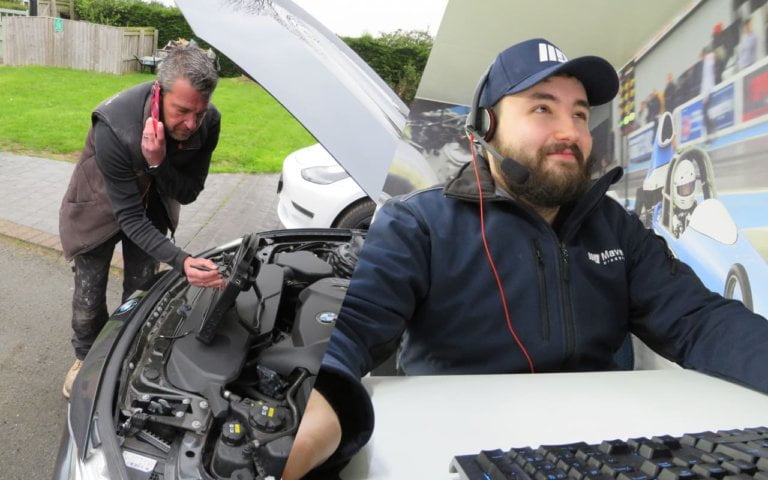Running a workshop can indeed be a challenging yet fulfilling endeavour
Workshop owners must navigate through a multitude of challenges that have the potential to impact the future of their business significantly. Among these challenges, three keywords stand out: technology, money, and planning. The rapid advancements in technology require workshop owners to constantly adapt and integrate new tools and systems to stay competitive. Financial management is crucial for ensuring a healthy cash flow, managing expenses, and making strategic investments. Additionally, effective planning is essential for setting goals, establishing a roadmap, and responding to market dynamics.
However, one more critical factor that workshop owners often face is staffing or the lack thereof. Independent workshops frequently struggle with finding and retaining skilled staff members, leading to increased workloads, compromised service quality, and hindered growth. The shortage of qualified technicians and administrative staff poses a significant challenge to the success and sustainability of workshops.
The good news is that, despite these challenges, there are simple yet powerful steps that workshop owners can take to guarantee the future success of their businesses. By implementing strategic measures, workshop owners can overcome these obstacles and thrive in the industry.
Our goal is to help garages stay in business and become more profitable. With over 15 years of experience in helping businesses of all shapes and sizes, ActionCOACH understands the importance of business coaching, and through working with us at Maverick Diagnostics, they have gained a good understanding of the automotive aftermarket. Together we have worked on the following ten fundamental steps as a guide to help you guarantee the future success of your workshop:
1. Get basic business coaching
Business coaching offers numerous benefits that can positively impact your workshop. It provides you with an external perspective, allowing you to see your business through fresh eyes and gain valuable insights. A business coach can help you identify strengths, weaknesses, and opportunities for growth, enabling you to make informed decisions and implement effective strategies to drive success. Additionally, business coaching can assist in overcoming any obstacles that may be hindering your workshop’s progress, ultimately leading to improved performance and profitability.
2. Make a plan
Not just for the business but for your future: Planning is the foundation of a successful business. It is crucial to develop a comprehensive plan that goes beyond day-to-day operations and encompasses your long-term vision. By setting clear goals, creating actionable strategies, and defining measurable objectives, you can ensure that your workshop remains focused and aligned with your desired outcomes. A well-crafted plan also enables you to adapt to market changes, identify growth opportunities, and make proactive decisions to future-proof your business.
3. Make difficult choices
Running a workshop often requires making tough decisions that impact the direction and growth of your business. This could involve evaluating your staffing needs and making necessary adjustments, such as hiring, training, or restructuring your team. It may also involve investing in new technology or upgrading existing systems to improve efficiency and stay competitive. While these decisions can be challenging, they are essential for the long-term success of your workshop. Embrace change and be willing to make difficult choices that will ultimately drive positive outcomes.
4. Invest in the right tools
Knowing when and what to invest in for is crucial for the success of your workshop. However, it’s important to approach these investments strategically. Assess your specific needs, consider market trends and customer demands, and research the latest advancements in the automotive aftermarket. By identifying the tools that will enhance productivity, deliver superior results, and provide a competitive edge, you can make informed investment decisions that yield a significant return on investment in the long run.
5. Know your numbers
Understanding your finances is vital for making sound business decisions. Track and analyse key financial metrics such as revenue, expenses, profit margins, and cash flow regularly. This information empowers you to identify areas for improvement, optimise your pricing strategies, control costs, and make informed
financial projections. By staying on top of your numbers, you can make strategic decisions that ensure the financial health and stability of your workshop.
6. Make a real-life business plan
Effective business planning extends beyond creating a plan on paper. It involves translating your strategies into actionable steps and implementing them in real-world scenarios. Break down your long-term goals into smaller milestones and create a timeline to track your progress. Regularly review and adjust your plans based on market trends, customer feedback, and internal performance indicators. Real-life business planning involves actively monitoring and refining your strategies to ensure they align with your evolving business
environment.
7. Charge customers properly
Pricing your services appropriately is a delicate balancing act. It’s important to set prices that are competitive within your market while adequately covering your costs and generating a reasonable profit. Conduct market research to understand the pricing landscape, analyse your value proposition, and consider factors such as labour, materials, overhead expenses, and desired profit margins. Transparently communicate the value you provide to customers and be prepared to adjust your pricing strategy as needed to maintain a healthy
balance between profitability and customer satisfaction.
8. Manage customers’ expectations
Exceptional customer service is a cornerstone of a successful workshop. Managing your customers’ expectations is crucial for building trust and loyalty. Clearly communicate your services, set realistic timelines, and provide regular updates throughout the process. Be transparent about any limitations or constraints that may affect the delivery of your services. Honesty and reliability are key in managing customer expectations. Ensure that you have clear communication channels in place to address any concerns or questions promptly. By consistently meeting or exceeding customer expectations, you can build a strong reputation and foster long-lasting relationships with your clients.
9. Understand your local market
A deep understanding of your local market is essential for the sustained success of your workshop. Stay updated on industry trends, watch your competitors, and identify any gaps or opportunities within your market. Conduct market research to understand the needs and preferences of your target audience and tailor your services and marketing efforts accordingly. By staying informed and proactive, you can position your workshop as a leader in your local market and capitalise on emerging trends and customer demands.
10. Determine the right staffing levels for profitability
Staffing is a critical aspect of workshop management. Analyse your business needs, including the volume of work, skill requirements, and customer demands, to determine the optimal number of staff members. Understaffing can lead to overwhelmed employees, compromised service quality, and customer dissatisfaction. On the other hand, overstaffing can result in excess labour costs and inefficiencies. Strive to find the right balance by forecasting workload, conducting skills assessments, and scheduling staff accordingly. Regularly evaluate and adjust your staffing levels to maximise productivity, maintain service quality, and drive profitability.
By following these ten fundamental steps, you can lay a solid foundation for the future success of your workshop. Overall, running a successful workshop requires a holistic approach that encompasses technological adaptation, sound financial management, effective planning, and strategic staffing. By proactively addressing these challenges and following the proven steps to success, workshop owners can position their businesses for a prosperous future in the dynamic automotive industry. Remember that running a workshop is an ongoing journey, and continuous improvement and adaptation are crucial.
For more information about business coaching go to www.actioncoach.co.uk/coaches/chester/





